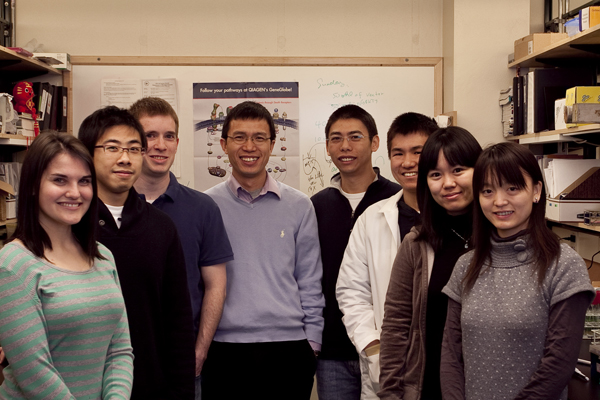Zhao-Qing Luo receives NIH 5 year Career Development Award
03-23-2010

"New award to support research on the redirection of protein trafficking by a bacterial pathogen"
Immune cells such as macrophages have evolved many mechanisms to suppress and digest invading microorganisms. To successfully establish an infection, pathogens must actively modulate host cellular processes to evade such digestion. Legionella pneumophila, the causative agent of Legionnaires' disease is able to survive and multiply within these hostile host cells by residing in a membrane-bound compartment called Legionella-containing vacuole. This bacterium accomplishes this feat by injecting numerous bacterial proteins into host cells to shut off their killing ability. By analyzing the functions of these proteins, our studies have revealed several host pathways modulated by L. pneumophila. For example, we found that this bacterium blocks pathways that allow the host cell to commit suicide upon being infected to ensure maximal multiplication. It also maintains a neutral pH in the lumen of its vacuoles by inhibiting the activity of vacuolar v-ATPase. In addition, it is known that this bacterium actively remodels the chemical composition of its vacuolar membranes so that the vacuoles cannot be recognized by the cellular immune machinery, but the molecular mechanisms of such remodeling are largely unknown. This award will allow us to study how the bacterium redirects host trafficking vesicles to convert its vacuolar membranes into ones similar to that of the endoplasmic reticulum (ER), a host organelle involved in many diverse cellular activities. These studies will lead to elucidate the molecular mechanisms underlying the subversion of host signaling pathways by L. pneumophila. Such information will be invaluable in devising new strategies to thwart the Legionnaires' pathogen and other bacteria.